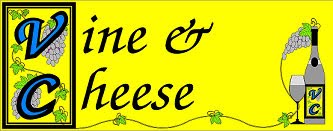Dao is a very old wine production region in north central Portugal due south of the Douro port wine region. It is named after the Dao River which along with the Mondego River lies within its boundaries. Dao is a somewhat isolated plateau (200-900m) surrounded on three sides by granite mountains which serve to shelter the region from prevailing climate changes which usually come from the North Atlantic. The climate therefore features a stable, consistently mild temperature with hot, dry summers and rainy winters. The diurnal temperature shift in Dao is dramatic with the cool nights serving to retain the grapes' acidity, a marker of distinction for the wines of Dao.
The grapes of Dao were introduced to the region centuries ago by Phoenicians, Carthagenians, Greeks, and Romans. Today's Portuguese red grape varieties include Touriga Nacional, Tinto Roriz (Tempranillo), Jaen, Alfrocheira Preto, Bastardo, Baga, and Rufete. Touriga Nacional and Tinto Roriz are the primary grapes of red Dao (and Port) with Touriga recognized as indigenous to the Dao region. Touriga, by the way, is widely planted in North Georgia and marketed here as a stand alone varietal. In Dao all red wines are made from blended grapes. Another indication of the age of this wine production region is that it has the oldest legal wine appellation system in the world instituted two hundred years before France. The first written reference to Dao wine appeared in 1390.
The modern era in Dao has not been problem free. In 1940 in an effort to elevate wine quality, the government empowered wine cooperatives as the governing authority over growers to actually make the wines of Dao and then sell them to merchants who would release them to the public. Hindsight is 20/20 and this monopoly only served to lower the quality of the wine by curtailing the initiative of the growers and eliminating competition amongst the cooperatives. Dao received its modern DOC in 1990 and since then the wine industry there has paralleled the pattern elsewhere with modernization in equipment and winemaking. The rustic Daos that this writer remembers from thirty years ago are now largely history but not entirely forgotten because every lighter style, fruit forward Dao red retains the same peppery spice, forest fruit flavors as as it always has.
This Friday, April 27th from 5 to 7pm, Stan Fenner with Artisan Vines will taste out several Portuguese reds and whites here at the store. I tasted these wines in advance and they are as good as any europeans I can remember. Do yourself a favor and be here for this one.
Saturday, April 21, 2012
Subscribe to:
Post Comments (Atom)




No comments:
Post a Comment